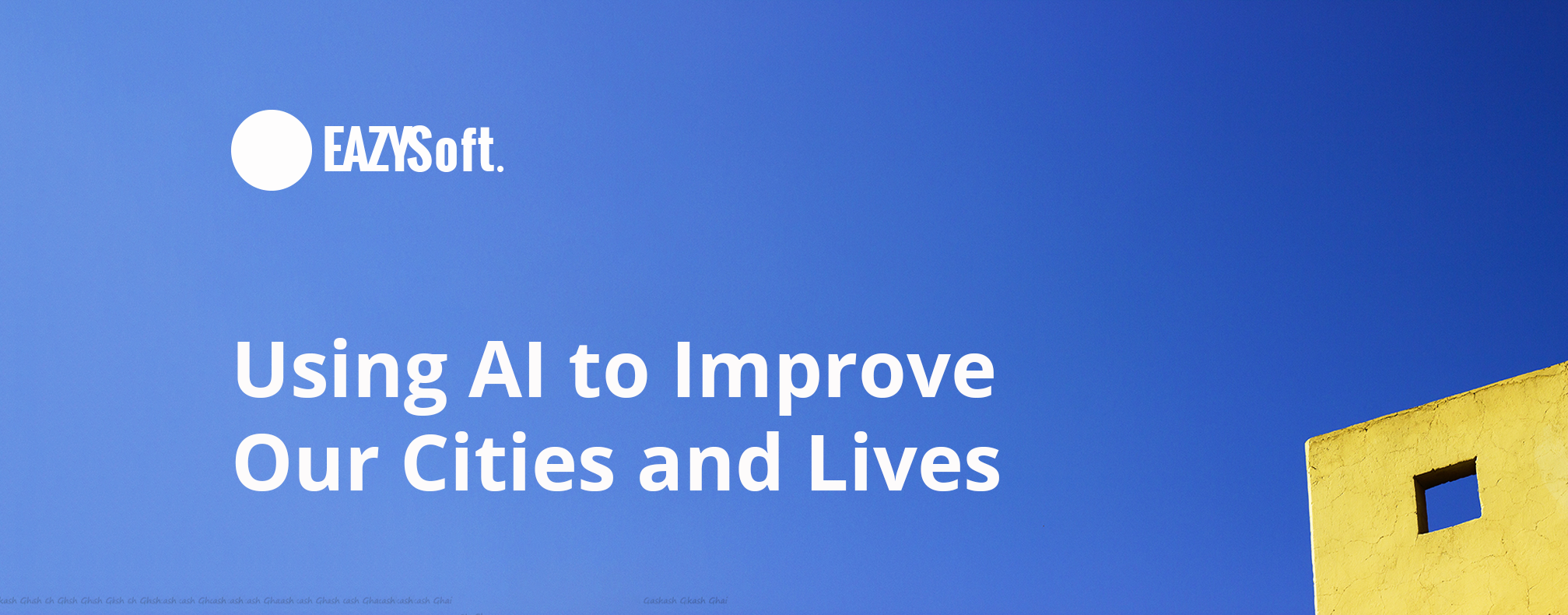
Using AI to Improve Our Cities and Lives
From voice assistants to self-driving cars, machine learning is revamping not only the way we interact with machines but also how we interact with the world. It is becoming one of the hottest technologies in the market, making mobile apps and services smarter and better than ever. Different companies are competing to be the first to find new way how AI can burrow into our lives. What does it means for us?
Artificial Intelligence is the concept of making machines capable to performing tasks without human intervention, such as building smart machines. This is a type of “deep learning” that allows machines to process information for themselves on a very sophisticated level, allowing them to perform complex functions like facial recognition. Big data is speeding up the AI development process. Once relegated to science fiction, artificial intelligence is now becoming a part of our daily lives, with the potential to immensely improve virtually every aspect of our cities and communities.
5 ways AI might affect us in the future:
Robots as friends
Robots that do things like deliver packages and clean offices will become much more common in the next 15 years. Mobile chipmakers are already squeezing the power of last century’s supercomputers into systems-on-a-chip, drastically boosting robots’ on-board computing capacity.Cloud-connected robots will be able to share data to accelerate learning
Moreover, there will be robots companions, who can understand and feel emotions. The robot will be programmed to read human emotions, develop its own emotions, and help its human friends stay happy.
Transportation
We’re already seeing the beginnings of self-driving cars, though the vehicles are currently required to have a driver present at the wheel for safety. Despite these exciting developments, the technology isn’t perfect yet, and it will take a while for public acceptance to bring automated cars into widespread use.
Uber-style “cars as a service” are likely to replace car ownership, which may displace public transport or see it transition towards similar on-demand approaches. Commutes will become a time to relax or work productively, encouraging people to live further from home, which could combine with reduced need for parking to drastically change the face of modern cities.
Employment and Workplace
The effects of AI will be felt most profoundly in the workplace. By 2030 AI will be encroaching on skilled professionals like lawyers, financial advisers, and radiologists. As it becomes capable of taking on more roles, organizations will be able to scale rapidly with relatively small workforces.
AI is more likely to replace tasks rather than jobs in the near term, and it will also create new jobs and markets, even if it’s hard to imagine what those will be right now. While it may reduce incomes and job prospects, increasing automation will also lower the cost of goods and services, effectively making everyone richer.
Going further, robots are already taking over some of the most hazardous jobs available, including bomb defusing.They are technically drones, being used as the physical counterpart for defusing bombs, but requiring a human to control them, rather than using AI.Other jobs are also being reconsidered for robot integration. Welding, well known for producing toxic substances, intense heat, and earsplitting noise, can now be outsourced to robots in most cases.
Education
The line between the classroom and individual learning will be blurred by 2030. Massive open online courses (MOOCs) will interact with intelligent tutors and other AI technologies to allow personalized education at scale. Computer-based learning won’t replace the classroom, but online tools will help students learn at their own pace using techniques that work for them.
AI-enabled education systems will learn individuals’ preferences, but by aggregating this data they’ll also accelerate education research and the development of new tools. Online teaching will increasingly widen educational access, making learning lifelong, enabling people to retrain, and increasing access to top-quality education in developing countries.
Sophisticated virtual reality will allow students to immerse themselves in historical and fictional worlds or explore environments and scientific objects difficult to engage with in the real world. Digital reading devices will become much smarter too, linking to supplementary information and translating between languages.
Public Safety and Security
By 2030 cities are likely to rely heavily on AI technologies to detect and predict crime. Automatic processing of CCTV and drone footage will make it possible to rapidly spot anomalous behavior. This will not only allow law enforcement to react quickly but also forecast when and where crimes will be committed. Fears that bias and error could lead to people being unduly targeted are justified, but well-thought-out systems could actually counteract human bias and highlight police malpractice.
Techniques like speech and gait analysis could help interrogators and security guards detect suspicious behavior. Contrary to concerns about overly pervasive law enforcement, AI is likely to make policing more targeted and therefore less overbearing.
Although we don’t know the exact future, it is quite evident that interacting with AI will soon become an everyday activity. Beyond these five impacts, there are even more ways that AI technology can influence our future, and this very fact has professionals across multiple industries extremely excited for the ever-burgeoning future of artificial intelligence.
